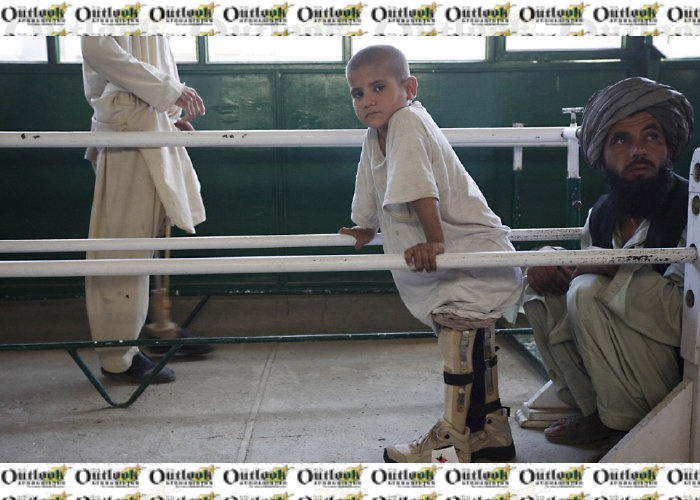KABUL - The Afghanistan Independent Human Rights Commission (AIHRC) said in a report on Sunday 4.4 million people in Afghanistan live with a disability and that the number people with disabilities has increased by 11.2 percent during the past 14 years.
The AIHRC data shows that 13.9 percent of the total population of Afghanistan (4,475,800) have been identified as people with disabilities.
“In 1384 (2005), this figure reached 2.7 percent of the total population of the country; thus, in 14 years, the number of people with disabilities has increased by 11.2 percent,” the report said.
The organization has recorded physical, mental, biological, and metabolic disabilities among the Afghan people.
Based on the findings of this study 1,042 (69.3 percent) of the 1,504 respondents have physical disabilities; 294 (19.5 percent, physical sensory disabilities; 42 (2.8 percent), biological and metabolic disabilities, such as diseases, including diabetes, and blood pressure problems; while epilepsy, autism, or mental and psychological impairments account for 68 (4.5 percent), and 58 (3.9 percent) of the people surveyed had additional disabilities, the report read.
The AIHRC, meanwhile, stated that war, explosions, arbitrary use of drugs, traffic accidents, non-observance of safety measures in homes, not being vaccinated and shortfalls in maternal healthcare during pregnancy were identified as the main causes of disabilities in the country.
“Among those who were abused and subjected to insults, humiliation, and harassment, 14 (2.4 percent) were victims of physical violence in the home and community, and 391 (68.2 percent) were deprived of support by family members, people, and government; 127 people (22.2 percent) were humiliated and insulted, 18 people (3.1 percent) were barred from entering public places and public gatherings, and 23 people (4 percent) were banned from traveling and socializing with friends and relatives,” the report said. (ATN)
Home » Afghanistan » Rights Watchdog Survey Finds 4.4 Million Afghans Live with A Disability
Rights Watchdog Survey Finds 4.4 Million Afghans Live with A Disability

